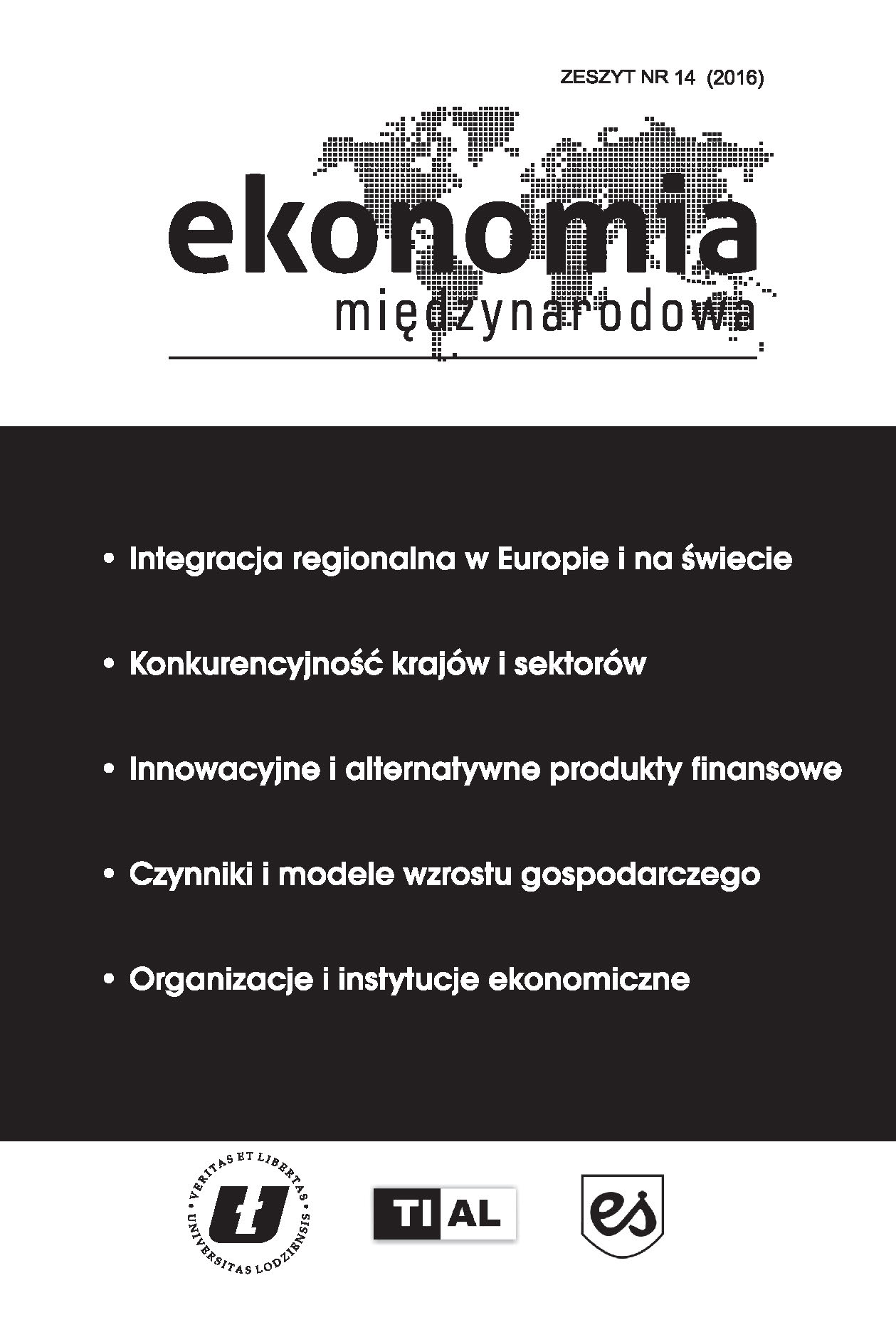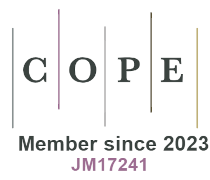Methods of measurement e-government in the context of international competitiveness
DOI:
https://doi.org/10.18778/2082-4440.14.04Keywords:
e-government, national competitiveness, public value of e-governmentAbstract
The subject under discussion is the problem of publications on the relationship between the e-government implementation process and the ability to compete. Today, it is estimated that the key objective of the informatisation of public administration at both central and local levels, is the preparation and implementation of electronic public services for citizens and businesses productively and efficiently. The e-government vision presented by the European Commission, and gradually implemented through EU Member States shows, that the process of developing e-government should serve as a tool to support the processes of governance. Projects related to the informatisation may influence the improvement of the education system and health services, create jobs, change how resources are managed, reduce transaction costs and the overall transformation of institutional nature. The currently used measuring tools of benefits from the implementation of public e-services and general development of e-government do not always show directly whether they are generated. The purpose of the publication is to identify and evaluate currently used indicators of electronic administration development in the context of measuring the benefits of this process, which are significant for improving the country’s competitiveness in the international arena.
References
Bossak J. (2008), Konkurencyjność gospodarki Polski a proces integracji europejskiej i rozwoju gospodarki opartej na wiedzy [w:] Michalski T., Piech K. (red.), Konkurencyjność Polski w procesie pogłębiania integracji europejskiej i budowy gospodarki opartej na wiedzy, SGH w Warszawie – Oficyna Wydawnicza, Warszawa.
Google Scholar
Botterman M., Millard J. (2009), Value for citizens: A vision of public governance in 2020. Raport dla Komisji Europejskiej, Dyrekcja Generalna ds. Społeczeństwa Informacyjnego i Mediów, Bruksela.
Google Scholar
Brown R., Silbergh D., Sartorius W., Combe C. (2006), Administrative Capacity Review of Poland, Background Paper, Washington.
Google Scholar
Centeno C., van Bavel R., Burgelman J.C. (2005), A Prospective View of e-Government in the European Union, The Electronic Journal of e-Government, Vol. 3, Issue 2.
Google Scholar
Europejskie Regionalne Stowarzyszenie Społeczeństwa Informacyjnego (2007), Podręcznik dobrych praktyk regionalnych – e-administracja, Stowarzyszenie „Miasta w Internecie”, Tarnów.
Google Scholar
Fountain J. (2001), Building the Virtual State. Information Technology and Institutional Change, The Brookings Institutions, Washington.
Google Scholar
Gant J.P. (2008), Electronic Government for Developing Countries, ITU Telecommunication Development Sector’s ICT Applications and Cybersecurity Division, Geneva.
Google Scholar
Hart-Teeter Research Companies (2001), E-Government. The Next American Revolution, The Council For Excellence in Government, Washington.
Google Scholar
Kushchu I., Kuscu M. (2003), From e-Government to m-Government: Facing the Inevitable, The 3rd European Conference on e-Government.
Google Scholar
Layne K., Lee J. (2001), Developing fully functional E-government: A four stage model, Elsevier, Government Information Quarterly, Vol. 18, Issue 2, Summer.
Google Scholar
DOI: https://doi.org/10.1016/S0740-624X(01)00066-1
Luterek M. (2010), E-government, Wyd. Akademickie i Profesjonalne, Warszawa.
Google Scholar
Mayer-Schonberger V., Lazer D. (2007), Governance and Information Technology: from Electronic Government to Information Government, Massachussets Institute of Technology, Massachussets.
Google Scholar
DOI: https://doi.org/10.7551/mitpress/7473.001.0001
Millard J., Shahin J., Warren R., Leitner C. (2006), Towards the eGovernment vision for EU in 2010: research policy challenges, Instytut Perspektywicznych Badań Technologicznych, Komisja Europejska, Dyrekcja Generalna, Wspólne Centrum Badawcze, Sewilla.
Google Scholar
Onsel S., Ulengin F., Ulusoy G., Aktas E., Kabak O., Topcu Y. (2008), A new prospective on the competitiveness of nations, Socio-Economic Planing Sciences 42, Elsevier.
Google Scholar
DOI: https://doi.org/10.1016/j.seps.2007.11.001
Prakash N., Jaiswal M.P., Gulla U. (2005), Measurement of Public Value of Enterprise Applications in Government and Public Sector, Methodology, Vol. 03.
Google Scholar
Sakowicz M. (2004), The use of ICT in Polish local authorities: Improving the quality of local democracy and public services [w:] Loffler E., Vintar M. (red.), Improving the quality of East and West European public services, Ashgate, Bratislava.
Google Scholar
Sakowicz M. (2008), Zastosowanie nowych technologii informacyjno-komunikacyjnych w rządzeniu i zarządzaniu administracją publiczną [w:] Osiński J. (red.), Administracja publiczna na progu XXI wieku. Wyzwania i oczekiwania, SGH w Warszawie – Oficyna Wyd., Warszawa.
Google Scholar
Schwab K. (2013), Global Competitiveness Report 2012–2013, World Economic Forum.
Google Scholar
Srivastava C., Shirish C., Thompson S.H. (2008), The Relationship between E-Government and National Competitiveness: The Moderating Influence of Environmental Factors, Communications of the Association for Information Systems, Vol. 23, Article 5.
Google Scholar
DOI: https://doi.org/10.17705/1CAIS.02305
Stempnakowski Z. (2007), Administracja elektroniczna [w:] Szewczyk A. (red.), Społeczeństwo informacyjne – problemy rozwoju, Difin, Warszawa.
Google Scholar
West D. (2005), Digital Government. Technology and Public Sector Performance, Princeton University Press, New Jersey.
Google Scholar
Downloads
Published
How to Cite
Issue
Section
License

This work is licensed under a Creative Commons Attribution-NonCommercial-NoDerivatives 4.0 International License.









